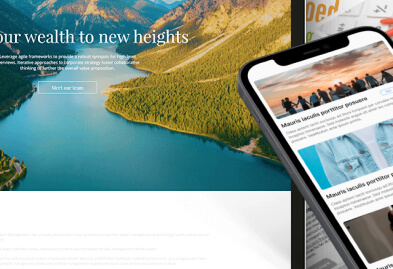
Often people praise Social Media as the best way to market a business or product. We even see entire businesses take form through social media. In the chart below, we see the growth in users across all social media platforms has increased exponentially. Furthermore, 83% of marketers actively pursue social media marketing initiatives. It is safe to say that social media is not a fad and can be an important tool in a marketer’s toolbox, however, it is not the only one, and not the strongest one either.
 Social Media is an ideal platform for promotion and building brand awareness but it can struggle in creating action amongst customers. For many businesses, email remains the most powerful tool to be able to close a sale and gain paying customers.
Social Media is an ideal platform for promotion and building brand awareness but it can struggle in creating action amongst customers. For many businesses, email remains the most powerful tool to be able to close a sale and gain paying customers.
Email Vs. Social Media: By The Numbers
In the table below, we have some of the key metrics to showcase the effectiveness of email marketing vs Facebook.
| Total number of users | 2.6 Billion | 1.7 Billion |
| Most Likely to Check First | 58% | 11% |
| Global Content Sharing | 4% | 57% |
| Use platform for deals from companies they know | 44% | 4% |
| Users who made a purchase after a marketing message | 66% | 20% |
| Open Rate / Click-Through Rate / Engagement Rate | 18% OR / 3.7% CTR | 0.07% |
| Customer Lifetime Value | 12% | 1% |
As we can see Facebook does perform very well, and even better for content shareability. However, when examining the effectiveness of turning marketing messaging into sales, email is the most effective.
Issue of Ownership
With email marketing, you fully own your subscriber lists. They can be imported into any system and you can deliver content directly to them. With Facebook, Twitter, or any other social media platform, you don’t own anything. The content is now on someone else’s platform and you are subject to their rules. If you read the Terms of Service of any platform including Facebook and Twitter, you will find a clause that states they hold the right to terminate your account at their discretion.

Account termination is not the only threat caused by lack of ownership. These platforms are in constant evolution. One day, your content may have been at the top of the feed; following an update, you will be out of sight and out of mind. This leads into the final issue of ownership. You spend a lot resources cultivating an audience strictly on that platform but that platform could shut down (like MySpace or Vine), there is a shift in trends (like Facebook users moving from younger to now older demographics), or the threats that impact how people view the platform (ex: the privacy issues of Facebook). All these factors and threats can leave a business high and dry with no audience.
Don’t Jump Ship On Email
As we can see, utilizing email marketing as the primary outreach platform to accompany a business’s website is still the strongest combination.There is no reason to leave email for social media marketing. However, email marketing and social media marketing are not mutually exclusive. Social media marketing is still a strong platform. It should be used to drive new awareness and traffic to your website. Then email marketing should be used for generating leads, driving sales and increasing customer retention.
In other words, organizations should use social media to drive visitors to the website, where they are then converted into email subscribers.










